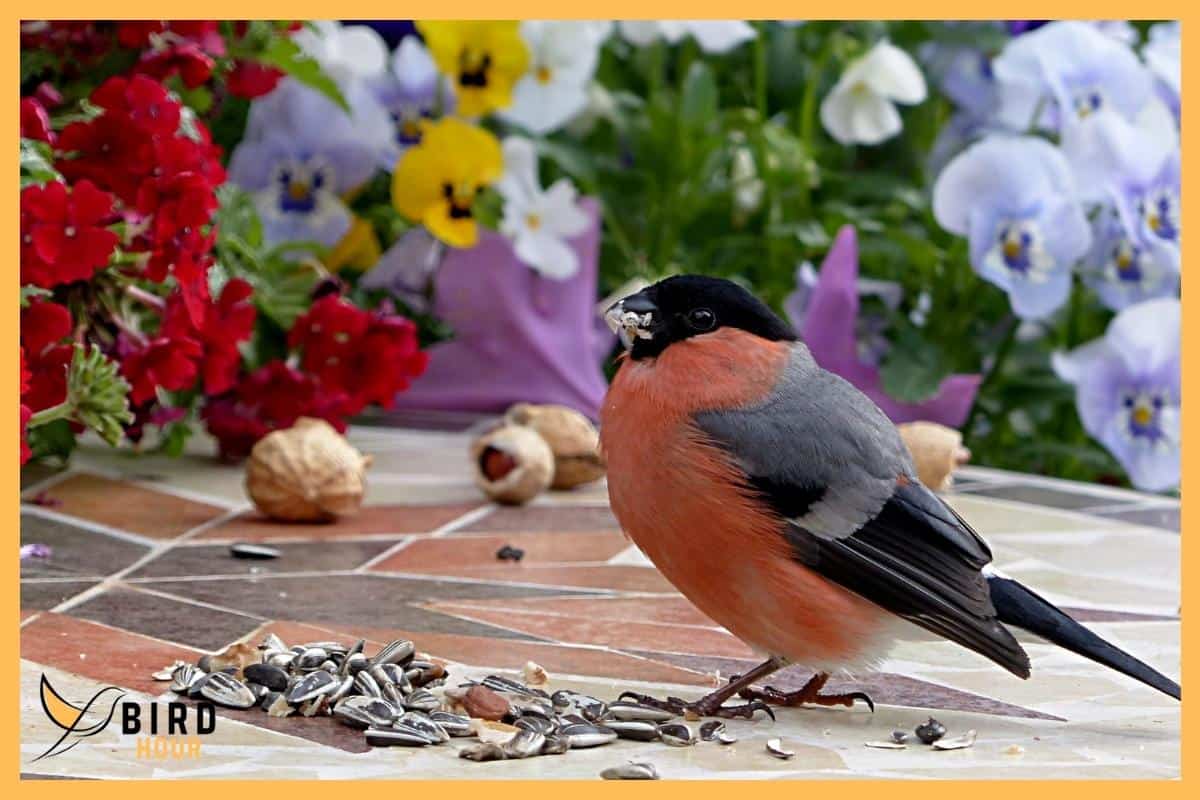just read the advise about not putting out cooked turkey fat. Does this work for all kinds of meat fat? We put bacon fat on the bird table all the time. It dissappears within minutes. Should we doscontinue and just use fat balls and suet pellets?.
Nothing beats the smell of sizzling bacon cooking in the morning. But after enjoying that tasty bacon you’re left with the remaining bacon grease. Rather than throwing it out, you may wonder if you can put that flavorful fat to good use by feeding it to the birds in your backyard. Birds love fatty foods so will they feast on bacon drippings?
While the high fat content of bacon grease may seem appealing to birds there are some crucial risks to consider before offering it. Bacon contains certain preservatives that can form harmful compounds when cooked. Let’s dive into the safety concerns and alternatives for feeding bacon drippings to birds.
Do Birds Naturally Eat Fatty Foods Like Bacon Grease?
Many wild birds are adapted to seek out and consume fatty foods as an essential energy source. Suet, which is raw beef or mutton fat, is eagerly eaten by insect-eating birds like woodpeckers nuthatches, and chickadees. These birds rely on fat-rich suet during winter when insects are scarce.
Other birds like ducks, geese, and seabirds naturally eat fatty fish like herring and small oily fish called menhaden. The fat content helps sustain migrating birds over long distances.
So it’s easy to see why birds may be attracted to the thick layer of fat left behind after cooking bacon. To a bird, that grease is an appealing source of dietary fat and calories. However, the curing process used to make bacon adds some dangerous compounds not found in natural fat sources.
What Are the Potential Dangers of Bacon Grease for Birds?
Here are a few of the biggest risks of allowing birds to consume bacon drippings:
-
Nitrates/nitrites – These preservatives are used when curing bacon to prevent spoilage and botulism. But when exposed to high heat, they can transform into carcinogenic nitrosamines.
-
High fat – While birds can digest fat, bacon grease is extremely high in saturated fat. Too much can cause obesity and heart issues.
-
Rancidity – Bacon grease left out can quickly become rancid from oxidation, breeding dangerous free radicals. Rancid fats are toxic if consumed.
-
Salt content – Bacon contains high levels of sodium, which can dehydrate birds when eaten in large quantities.
The combination of these factors means bacon drippings are far less healthy than natural fat sources for birds like suet or nuts. They lack the more balanced nutritional profile wild birds evolved eating.
What Types of Birds Should Avoid Bacon Grease?
Most wild bird experts advise against offering bacon grease to any species of backyard birds given the potential dangers. But some types of birds are especially sensitive:
-
Hummingbirds – Their high metabolisms and tiny size make them extremely vulnerable to rancid fat, salt, and nitrates.
-
Baby birds – Their developing digestive systems cannot properly process such high-fat, high-salt foods.
-
Oriole – As members of the blackbird family, orioles are prone to iron storage disease, so salty, fatty foods pose a big risk.
-
Endangered birds – Rare birds like the McCown’s longspur already face population declines, so added threats to survival should be avoided.
If you observe any signs of distress, illness, or odd behavior in birds after eating bacon grease, remove it right away and talk to a wildlife rehabilitation expert.
Are There Any Safe Alternatives to Use Instead of Bacon Grease?
To provide birds with the healthy fats they need without the risks of bacon grease, here are some safer alternatives:
-
Offer certified wildlife suet formulated for songbirds in feeders. Look for nitrate/nitrite-free options rendered from beef kidney fat.
-
Hang feeders with raw, shelled peanuts, walnuts, and other unsalted nuts high in natural fats.
-
Make DIY suet treats by mixing peanut butter with cornmeal, oats, or birdseed and stuffing it into a mesh onion bag.
-
Offer extra black oil sunflower seeds, which have a high fat content to increase avian energy levels.
-
Fry up plant-based bacon made from tempeh or coconut to produce grease that is low in nitrates.
With so many nutritious fat sources available, you don’t have to risk your backyard birds’ health by feeding them conventional bacon drippings. Follow the same savory aromas by frying up turkey bacon or plant-based bacon to generate bird-safe fats instead.
Tips for Disposing of Bacon Grease Safely
When cooking up delicious bacon, be sure to promptly clean up any leftover grease using these tips:
-
Pour hot grease into an empty metal can and let fully cool and solidify before throwing away. Never pour down drains.
-
Mix cool grease with bird seed, coffee grounds, or sand to solidify it before disposing in your regular trash.
-
Freeze bacon fat in a metal container with a tight lid, then toss on trash day.
-
Add it to your compost pile, but only if rodents are not a problem. Bury deep under browns.
-
Use hardened grease to make candles or fire starters instead of throwing out.
Properly disposing of bacon drippings keeps it away from birds until trash day. And exploring alternates like suet feeders or plant-based bacon lets you keep enjoying that tasty smell without endangering your backyard ecosystem.

MAKE YOUR OWN BIRD SUET WITH BACON GREASE
FAQ
Can birds eat meat grease?
Can wild birds eat raw bacon fat?
Can you make bird suet from bacon fat?
